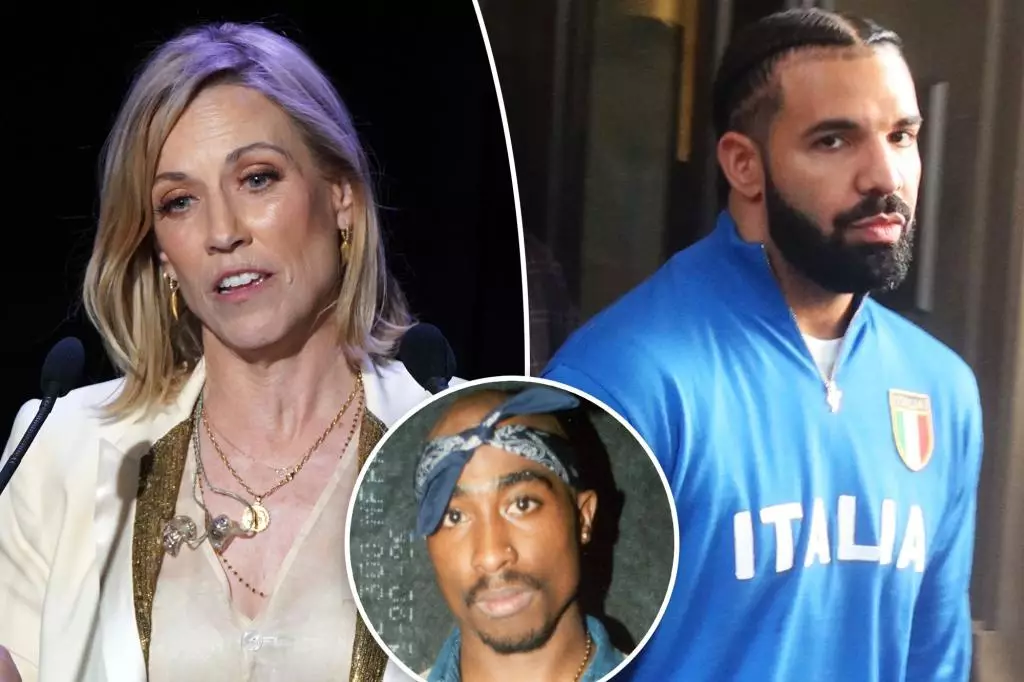Sheryl Crow recently expressed her disapproval of Drake’s use of an AI-generated version of Tupac Shakur’s voice in his diss track aimed at Kendrick Lamar. Crow called the move “hateful” and emphasized that bringing deceased individuals back to life through artificial means is disrespectful. She highlighted the fact that the individuals being portrayed in such a manner have no say in how their images and voices are utilized in the present day. Crow’s words shed light on the ethical implications of using AI-generated voices of deceased artists in contemporary music.
Prominent entertainment lawyer Howard E. King, who represents the Shakur estate, took legal action against Drake for the unauthorized use of Tupac’s voice in the diss track. The lawyer issued a cease and desist letter demanding the immediate removal of the song from all streaming platforms. King emphasized that the use of Tupac’s voice without approval is a violation of the late rapper’s publicity and legal rights. This incident raises questions about the boundaries of artistic expression and the responsibility of artists to obtain proper consent when using the likeness of others, especially in cases involving deceased individuals.
In response to the legal action taken by the Shakur estate, Drake removed the controversial song from circulation. However, he later addressed the situation in another diss track aimed at Kendrick Lamar, shifting the blame for the legal dispute onto his fellow rapper. Drake’s handling of the situation raises concerns about accountability and respect for artistic legacy. By deflecting responsibility and engaging in further negativity, Drake fails to acknowledge the impact of his actions on the reputation and legacy of iconic artists like Tupac Shakur.
Kendrick Lamar, the target of Drake’s diss track, responded to the disrespectful use of Tupac’s voice in his own music. In his hit song “Not Like Us,” Lamar called out Drake’s actions as a sign of disrespect towards Tupac and the Bay Area. The escalating conflict between the two artists underscores the need for mutual respect and integrity within the music industry. Lamar’s decision to address the issue in his own music demonstrates a commitment to upholding the honor and memory of influential figures in hip-hop history.
The controversy surrounding Drake’s use of an AI-generated Tupac Shakur voice in his diss track against Kendrick Lamar raises important questions about artistic ethics, legal rights, and mutual respect in the music industry. The criticism from Sheryl Crow, legal action by the Shakur estate, response from Drake, and retaliation from Kendrick Lamar all contribute to a complex narrative of power dynamics and accountability within the realm of hip-hop music. As fans and critics continue to dissect this incident, it serves as a reminder of the enduring impact artists have on each other’s legacies and the need for thoughtful and mindful creative expression moving forward.

